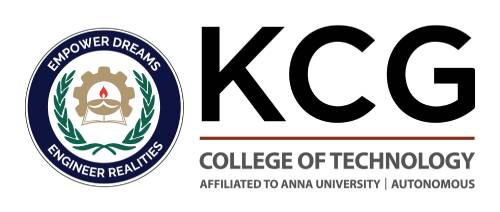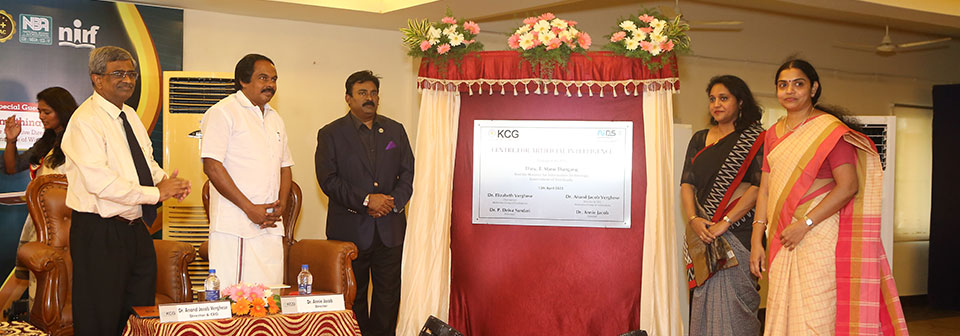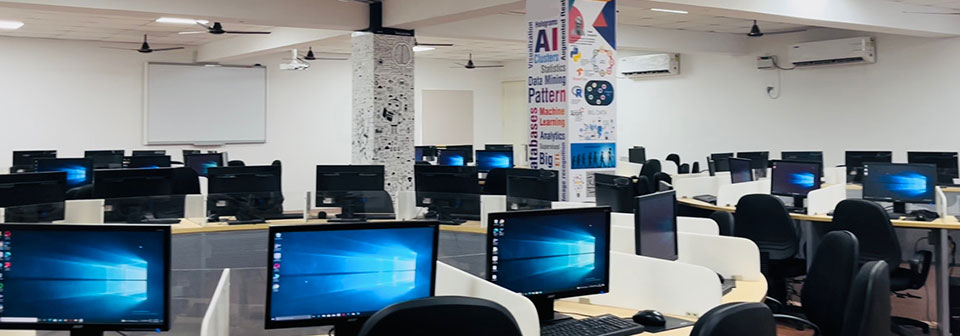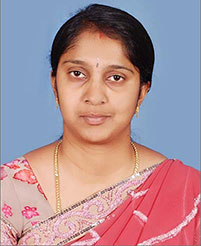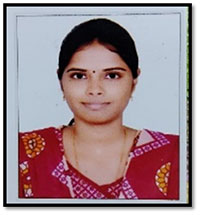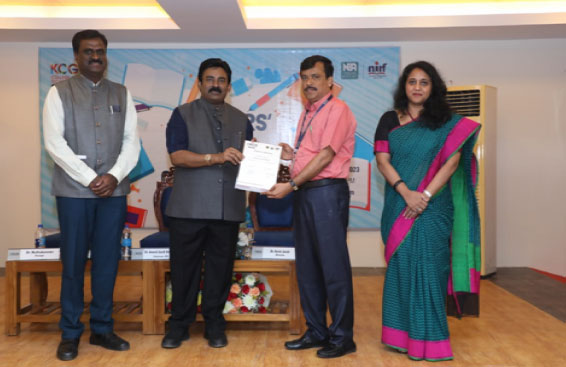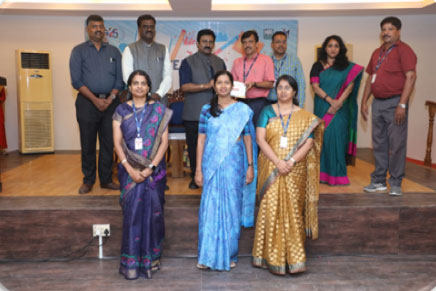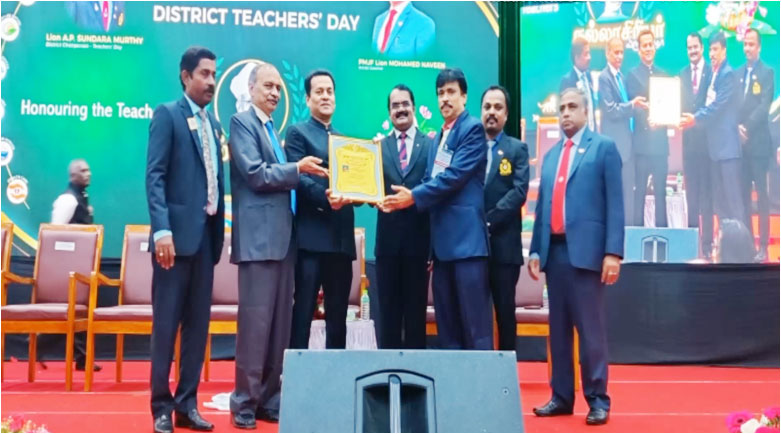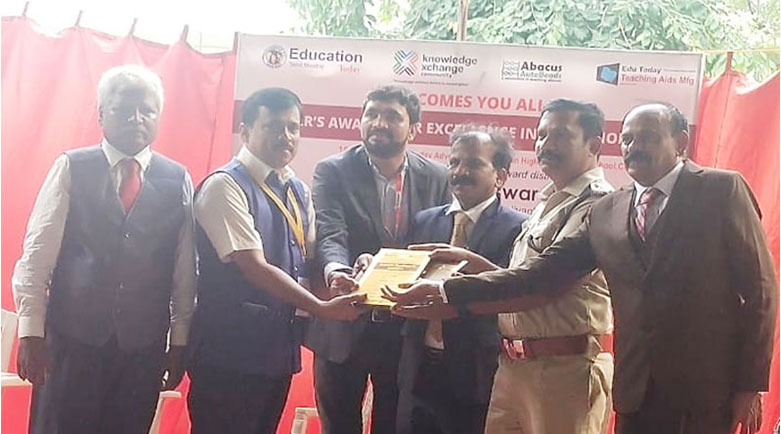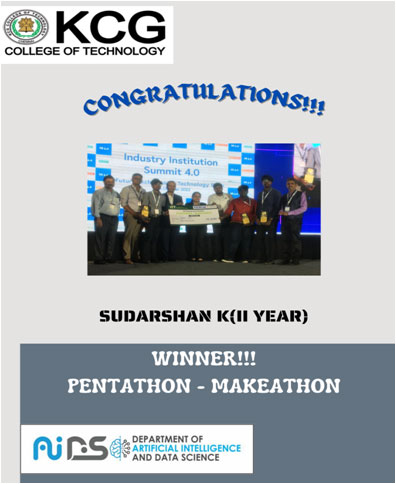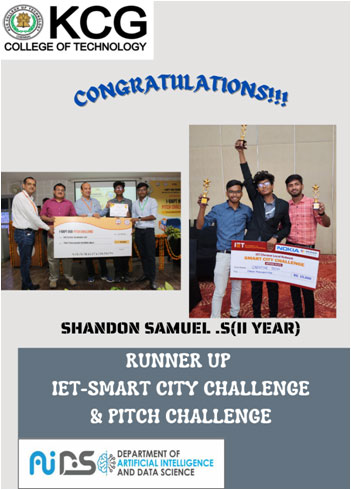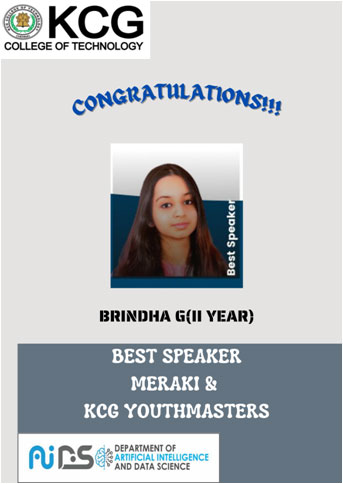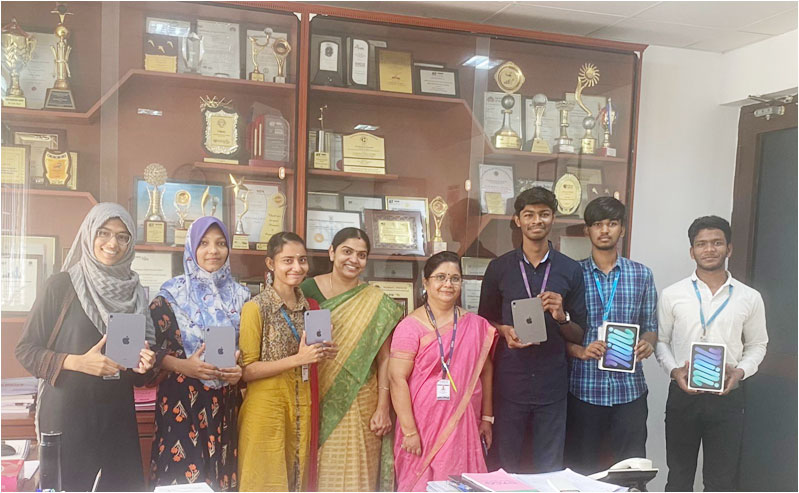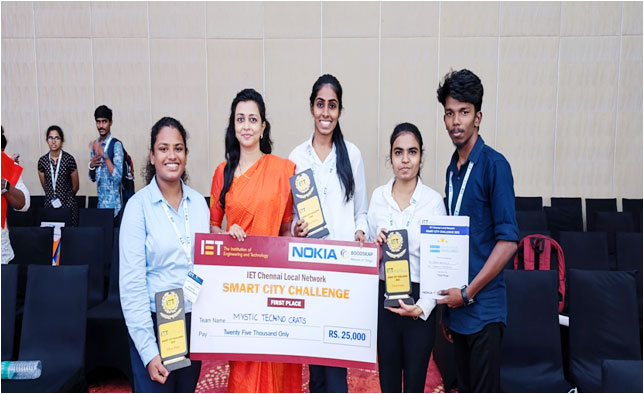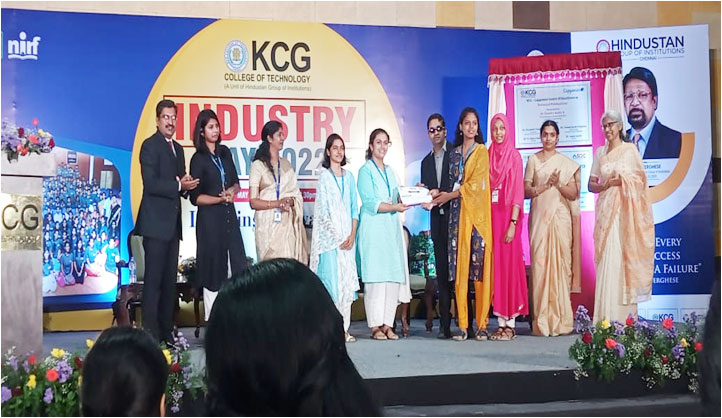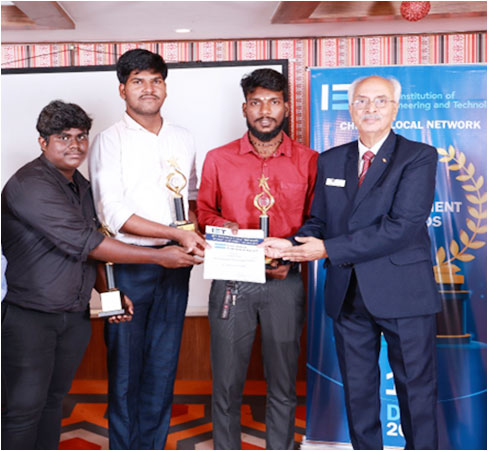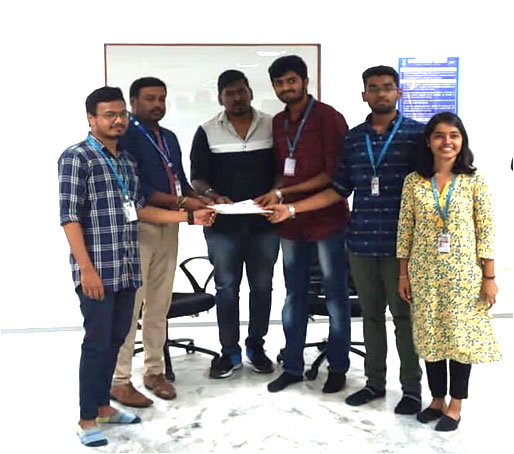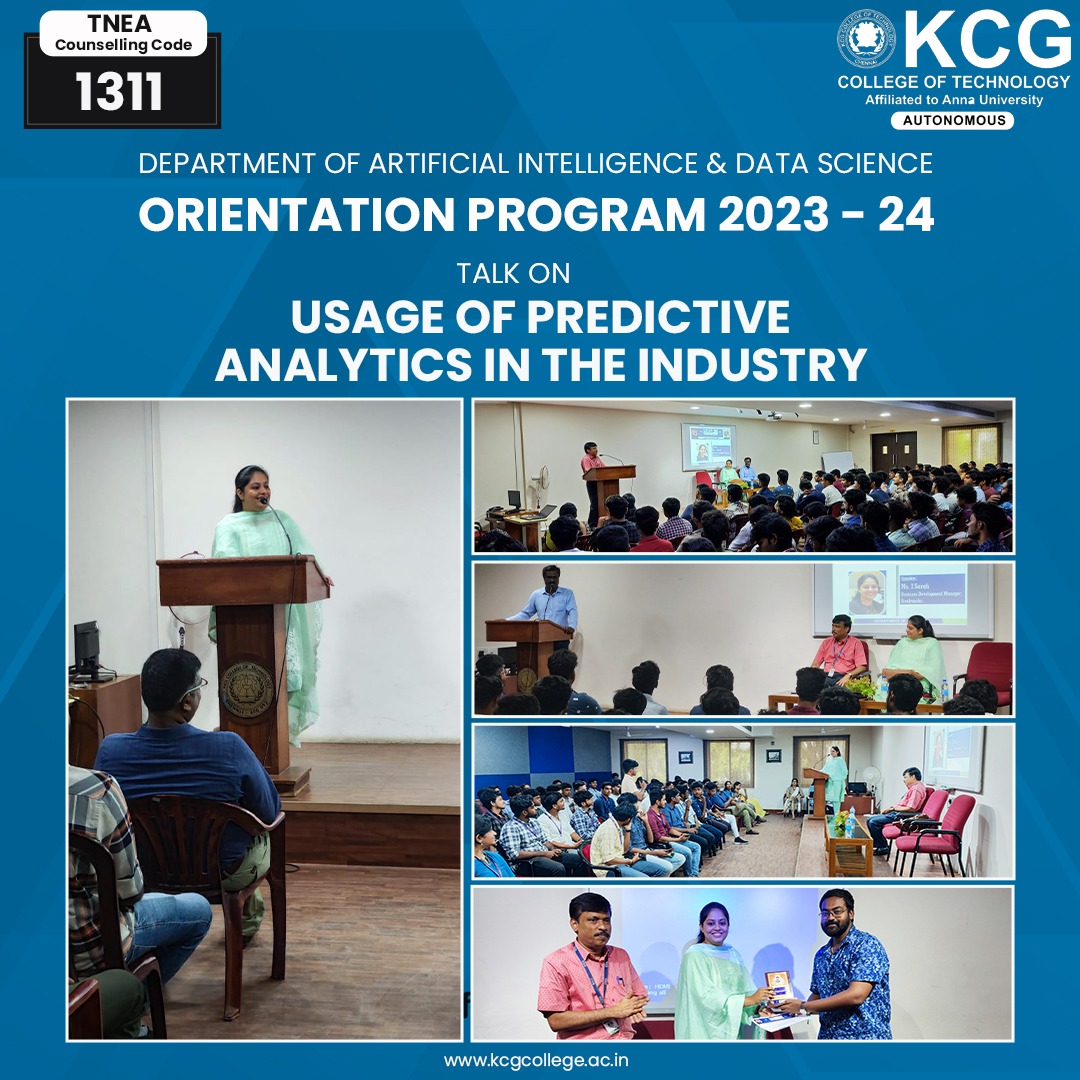About the Department
B. Tech Artificial Intelligence & Data Science is an undergraduate program with innovative learning solutions establishing knowledge in Artificial Intelligence and Data Science. In specific, this degree is designed to inspire students will be trained and to construct intelligent machines, software, or applications with a cutting-edge blend of machine learning, analytics, and visualization technologies.
This course wishes at providing not only the core technologies such as artificial intelligence, data mining and data modelling but also gives intensive inputs in the areas of machine learning and big data analytics.
A broad range of data science tools and technologies, from those which are established in industry and academia for many years (e.g., MATLAB, R and WEKA), to the new favorites (e.g., Python, Jupyter notebook, Apache Spark, and libraries such as Keras, TensorFlow, and PyTorch) prepares the aspirants for mainstream data science.
Trust areas of AI & DS:
- Google’s AI-powered predictions (E.g.: Google Maps)
- Ride-sharing applications (E.g.: Uber)
- AI Autopilot in Commercial Flights
- Spam filters on E-mails
- Plagiarism checkers and tools
- Facial Recognition
- Search recommendations
- Smart personal assistants (E.g.: Siri, Alexa)
- Fraud protection and prevention.
Research Projects can be done in the area on:
- Bio-medical Text Mining,
- Analytics in Surveillance Videos,
- Data Analytics on Social Media data,
- Drug Analysis,
- Predictive Analytics for Cancer,
- Fraudulent Data Analytics,
- Traffic Data Analytics.
Vision
The Department of Artificial Intelligence and Data Science desires to become a: prominent Centre of Excellence for producing competent Data Architect for providing quality education by using the latest tools.
Mission
- Provide quality education in the field of Artificial Intelligence and Data Science related domains.
- Facilitate Skill based value added education.
- Inculcate professional performance, an essence of entrepreneurship and promise to the growth of the country.
- Providing varying software development tools and required implementation facilities.
Programme Specific Outcomes (PSO)
| PSO1: | Apply knowledge pertaining to Data engineering, Data pipelining and Programming skills to analyze socially relevant problems by means of Artificial Intelligence and Data Science. |
| PSO2: | Use Machine Learning tools related to Data Management, Data Manipulation, Data Visualization, Big Data and Deep Learning to analyze and interpret complex data sets to drive decision making. |
| PSO3: | Uphold professional standards and ethical principles in the development and deployment of AI and Data Science solutions, ensuring fairness, transparency, and accountability while respecting privacy, mitigating bias, and complying with legal and regulatory frameworks. |
Programme Educational Objectives (PEO)
| PEO1: | To provide graduates with the proficiency to utilize the fundamental knowledge of basic sciences, mathematics, Artificial Intelligence, data science and statistics to build systems that require management and analysis of large volume of data. |
| PEO2: | To enrich graduates with necessary technical skills to pursue pioneering research in the field of AI and Data Science and create disruptive and sustainable solutions for the welfare of ecosystems. |
| PEO3: | To enable graduates to think logically, pursue lifelong learning and collaborate with an ethical attitude in a multidisciplinary team. |
| PEO4: | To Prepare Personality Skills, Provoke Social Commitment and Instill Societal Responsibilities in their Profession. |
Program Outcomes (Pos)
Engineering graduates will be able to:
| PO1: | Engineering Knowledge: Apply the knowledge of mathematics, science, engineering fundamentals, and an engineering specialization to the solution of complex engineering problems. |
| PO2: | Problem Analysis: Identify, formulate, review research literature, and analyze complex engineering problems reaching substantiated conclusions using first principles of mathematics, natural sciences, and engineering sciences. |
| PO3: | Design / Development of Solutions: Design solutions for complex engineering problems and design system components or processes that meet the specified needs with appropriate consideration for the public health and safety, and the cultural, societal, and environmental considerations. |
| PO4: | Conduct Investigations of Complex Problems: Use research-based knowledge and research methods including design of experiments, analysis and interpretation of data, and synthesis of the information to provide valid conclusions. |
| PO5: | Modern Tool Usage: Create, select, and apply appropriate techniques, resources, and modern engineering and IT tools including prediction and modeling to complex engineering activities with an understanding of the limitations. |
| PO6: | The Engineer and Society: Apply reasoning informed by the contextual knowledge to assess societal, health, safety, legal and cultural issues, and the consequent responsibilities relevant to the professional engineering practice. |
| PO7: | Environment and Sustainability: Understand the impact of the professional engineering solutions in societal and environmental contexts, and demonstrate the knowledge of, and need for sustainable development. |
| PO8: | Ethics: Apply ethical principles and commit to professional ethics and responsibilities and norms of the engineering practice. |
| PO9: | Individual and Teamwork: Function effectively as an individual, and as a member or leader in diverse teams, and in multidisciplinary settings. |
| PO10: | Communication: Communicate effectively on complex engineering activities with the engineering community and with society at large, such as, being able to comprehend and write effective reports and design documentation, make effective presentations, and give and receive clear instructions. |
| PO11: | Project Management and Finance: Demonstrate knowledge and understanding of the engineering and management principles and apply these to one’s own work, as a member and leader in a team, to manage projects and in multidisciplinary environments. |
| PO12: | Lifelong Learning: Recognize the need for and have the preparation and ability to engage in independent and lifelong learning in the broadest context of technological change. |
| UG (Under Graduate) | |||
| B.Tech. – Artificial Intelligence & Data Science – 4 Years (Started in 2020) | Regulation – 2023 | Regulation – 2021 | Regulation – 2017 |
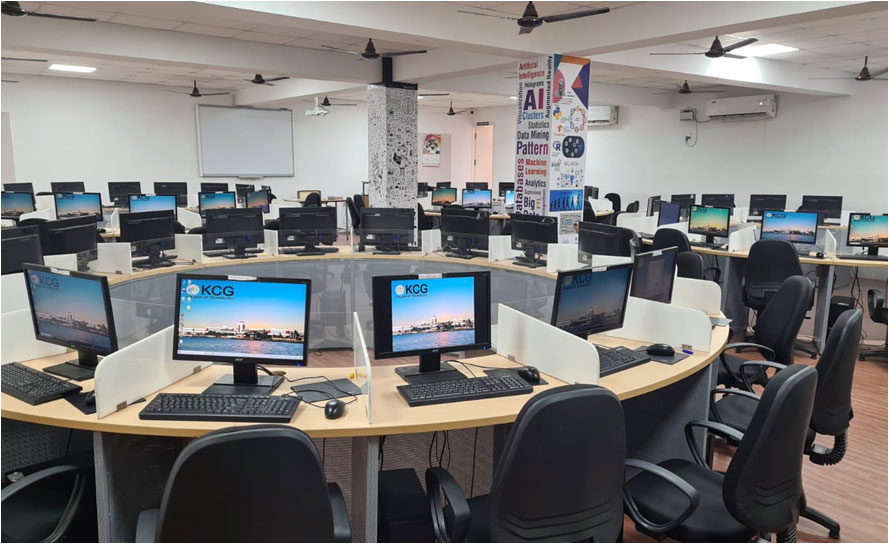
JOHN McCarthy Intelligence Lab
The laboratory has 66 systems with Intel core™i5-10400 configuration installed with the following OS /React JS / Express JS / Angular JS / MATLAB / NS2 / Python, Numpy, Scipy, Matplotlib, Pandas, statmodels, seaborn, bokeh / Spyder / Jupiter / R- Lang / MONGO DB / XAMPP/ JS / Ms-Office, K7 Antivirus
Research area: Data Science, Artificial Intelligence, Machine learning, Full Stack web development, IOT, Cyber security, Big DATA, Networks.
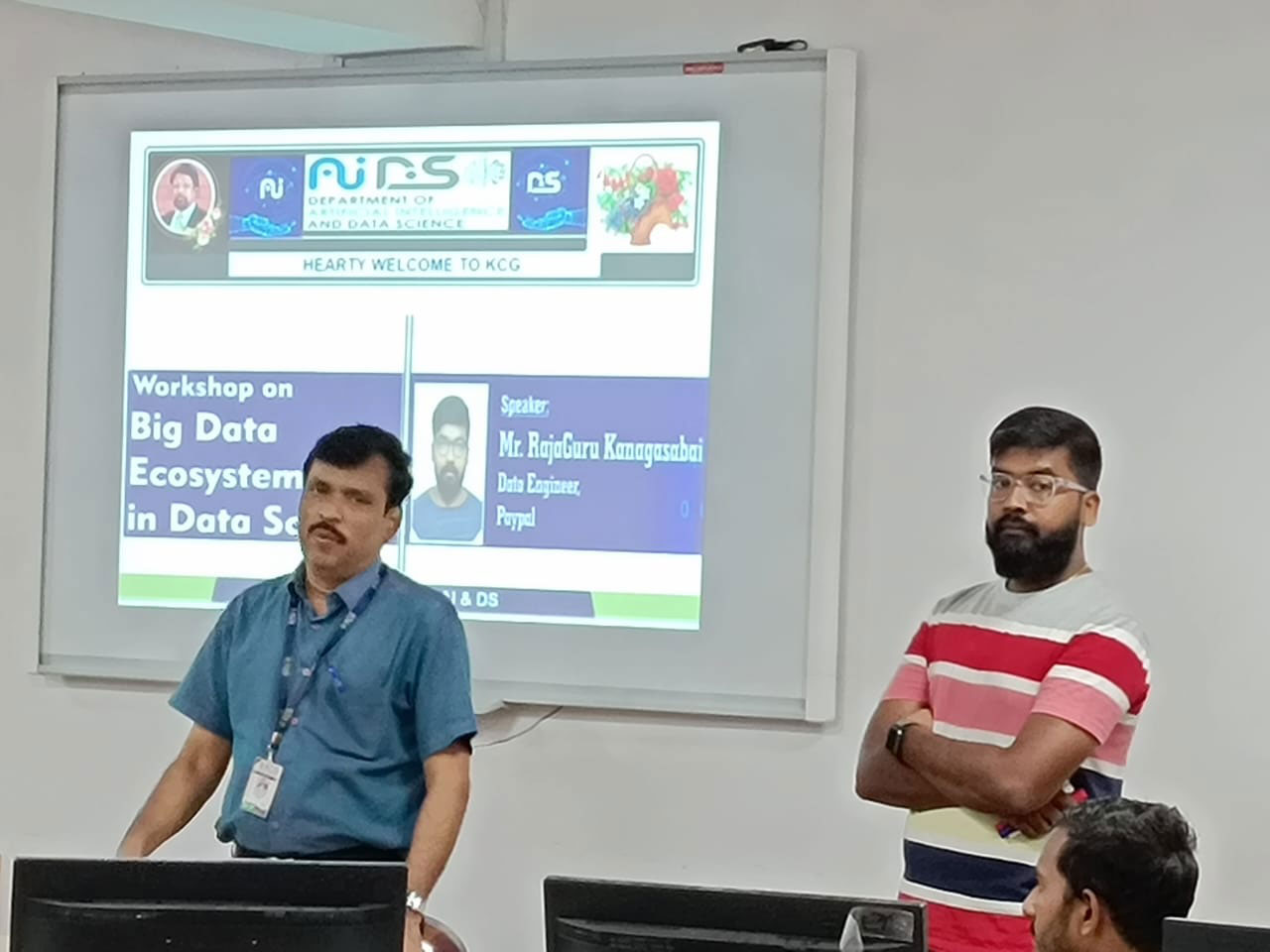
Big Data Ecosystem in data science
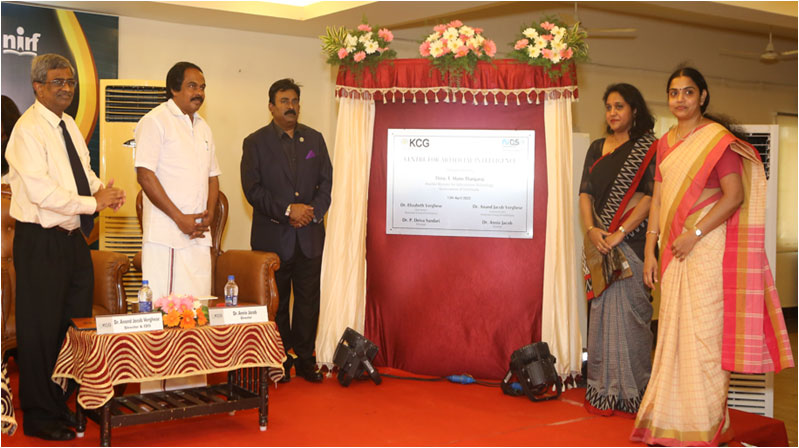
Lab cum Centre for AI Inauguration on 13/04/22
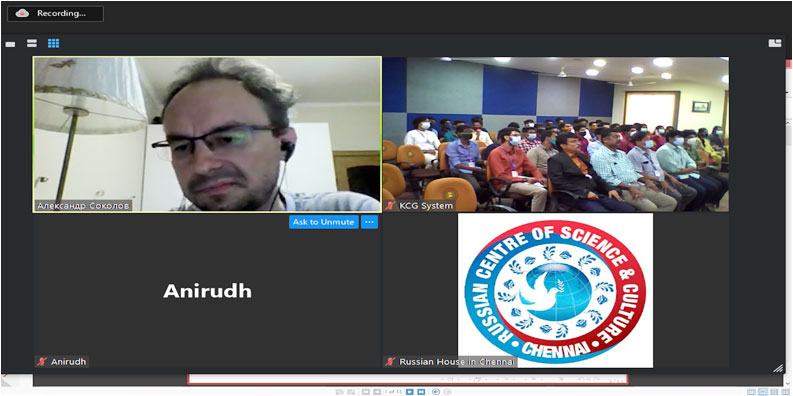
Introduction into Development of Information Systems, Designing & Management Principles – by Dr. Alexandar P. Sokolov, Associate Professor, Bauman Moscow State Technical University, Moscow, Russia on 28/09/21.
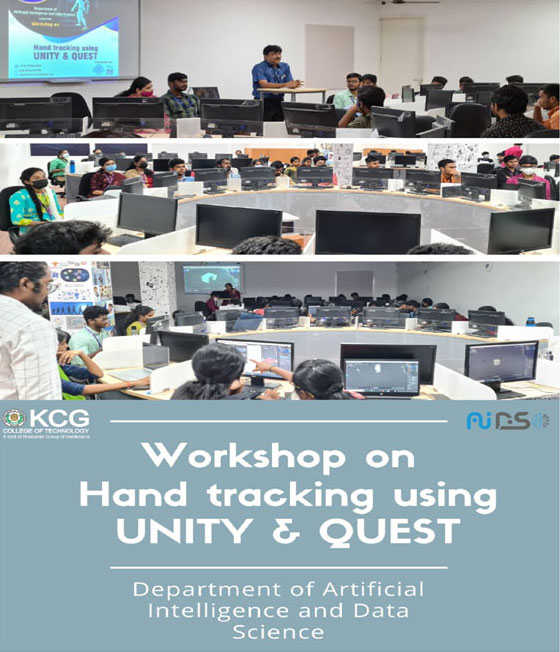
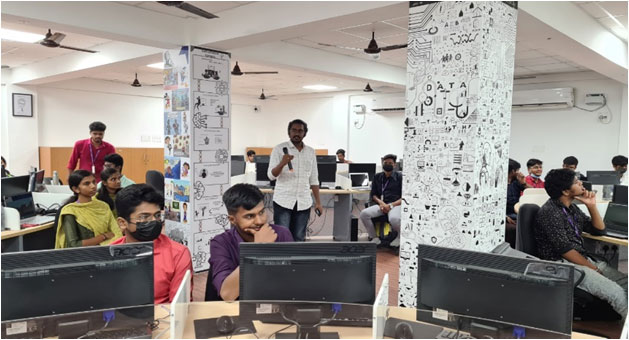
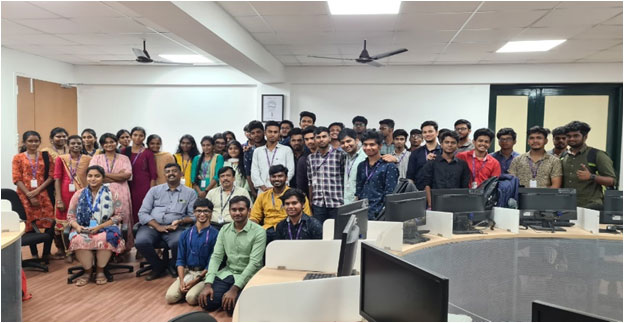
Motion Capture Workshop on 13 & 14 May’ 22. Resource Persons from Spacezee, Chennai.
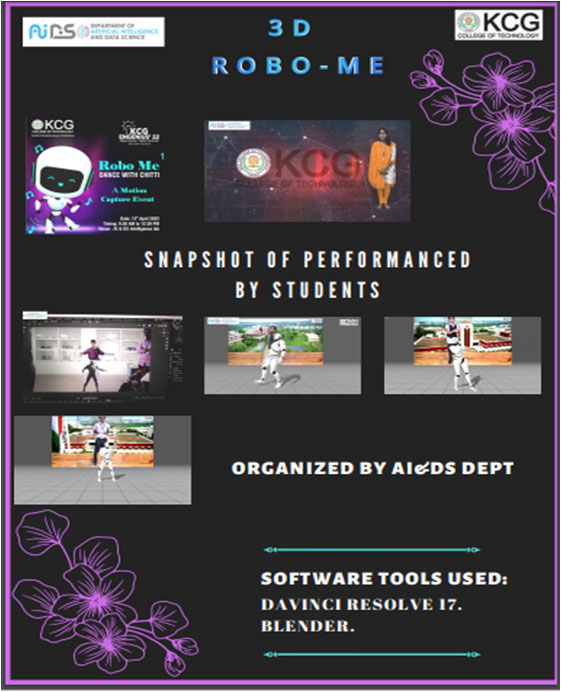
3D ROBO ME
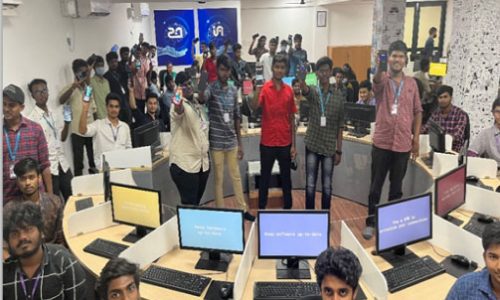
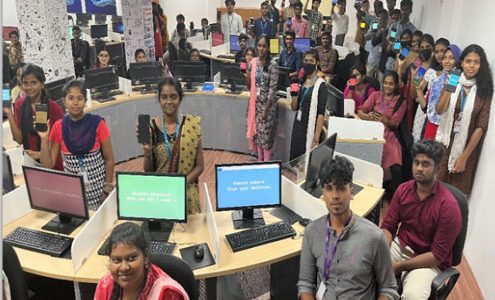
100 in 100 Activities (NFT)







